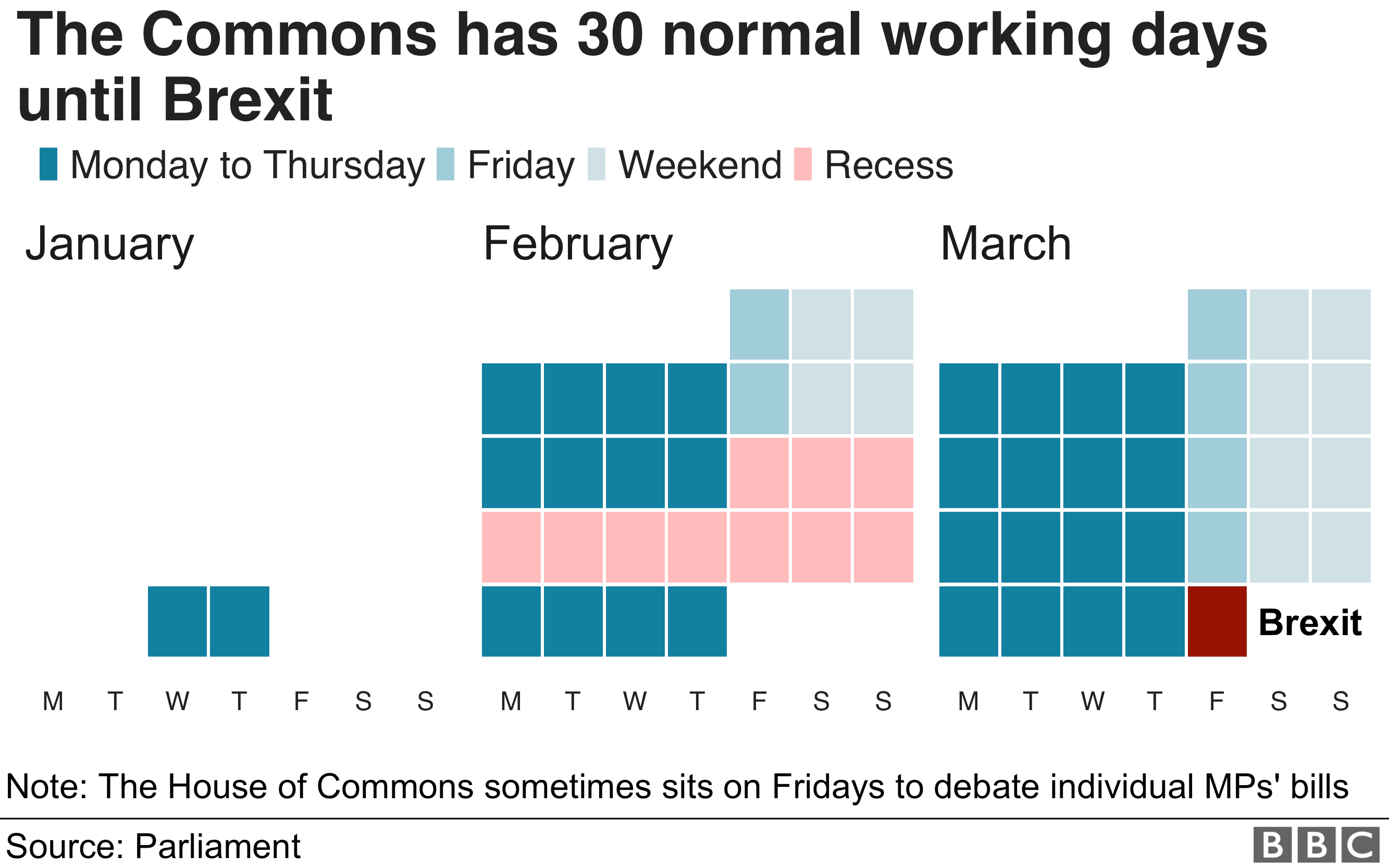EU rejects calls to reopen Brexit deal
The EU’s chief negotiator Michel Barnier says the Irish backstop is “part and parcel” of the UK’s Brexit deal and will not be renegotiated.
Speaking at the European Parliament, Mr Barnier said it was a “realistic solution” to preventing a hard border.
British MPs voted earlier this month against the deal agreed by the UK and EU during 18 months of negotiations.
Instead, on Tuesday, they voted for PM Theresa May to seek “alternative arrangements” to the backstop.
The UK is due to leave the European Union at 23:00 GMT on 29 March. The backstop is an “insurance” policy to stop the return of checks on goods and people along the Northern Ireland border.
As it stands, the backstop would effectively keep the UK inside the EU’s customs union, but with Northern Ireland also conforming to some rules of the single market.
It was one of the main reasons Mrs May’s Brexit deal was voted down in Parliament by an historic margin earlier in January as critics say a different status for Northern Ireland could threaten the existence of the UK and fear that the backstop could become permanent.
Mrs May has said there are several possible alternatives to the backstop that she wanted to discuss with EU leaders.
These include a “trusted trader” scheme to avoid physical checks on goods flowing through the border, “mutual recognition” of rules with the EU and “technological” solutions.
She also wants to discuss a time limit on the backstop and a “unilateral exit” mechanism – both options ruled out by the EU in the past.
But the message from the EU was the backstop remained an integral part of the withdrawal agreement – the so-called “divorce deal” agreeing the terms of the UK’s exit from the EU.
Mr Barnier said: “Calmly and clearly, I will say right here and now – with this withdrawal agreement proposed for ratification – we need this backstop as it is.
“Rejecting the backstop as it stands today boils down to rejecting the solution which has been found with the British, but the problem remains.”
Ireland’s deputy prime minister earlier gave a warning over Mrs May’s future plans for the backstop, saying that anyone who allowed the “borders and divisions of the past” to return would be “judged harshly in history”.
Simon Coveney added: “There are some things that are more important than economic relationships and this is one of them.”
President of the European Commission Jean-Claude Juncker said he believed Mrs May’s “personal commitment” to avoid “slipping back to darker times past”, but he said the “safety net” of the backstop was necessary to prevent it.
He added: “We have no desire to use this safety net, [but] no safety net can be truly safe if it can just be removed at any time.”
But UK MEP Nigel Farage attacked the EU, claiming it had pushed Mrs May into the backstop in the first place.
The former UKIP leader told the European Parliament: “I accept [Mrs May] made a dreadful mistake by signing up to the backstop, [but] you summoned her at 04:15 in the morning, she left Downing Street, she went to meet the ultimatum you set her.
“She signed up to something that has proved to be a disaster. She signed up to something that no country, unless it had been defeated in war, would have signed up to.
“We now realise that mistake and the House of Commons, the country is overall looking for a deal.”
‘Very Cordial’
At the same time as the European Parliament was discussing Brexit, Mrs May and Labour leader Jeremy Corbyn were holding their long-awaited meeting on the issue, following an earlier clash at Prime Minister’s Questions.
In the Commons Mr Corbyn repeatedly urged Mrs May to rule out a no-deal Brexit after a majority of MPs voted against the prospect in another vote on Tuesday.
But Mrs May said: “You cannot just vote to reject no deal, you have to support a deal.”
Their later meeting, away from the cameras, was “very cordial”, according to a Labour spokesperson.
“There was a useful exchange of views. We made the case for our plan. There was a detailed exchange of views on a customs union and single market relationship.”
The pair agreed to meet again soon, the spokesperson added.
The European Parliament’s Brexit coordinator, Guy Verhofstadt, echoed his colleagues by criticising the UK for not being clear about what they wanted from the deal.
He said the two years had been “exhausting” on both sides of the Channel, and called for Mrs May and Mr Corbyn to work together – “not only eating biscuits and drinking tea” – to come to a cross-party solution and to stop “using and abusing Brexit to get rid of each other”.
Mr Juncker said the votes in the Commons on Tuesday increased the risk of a “disorderly” Brexit, but he still believed there could be a deal done between the EU and UK, adding: “We will work day and night to make it happen, and to ensure we are ready in case it does not.”

Source: BBC



